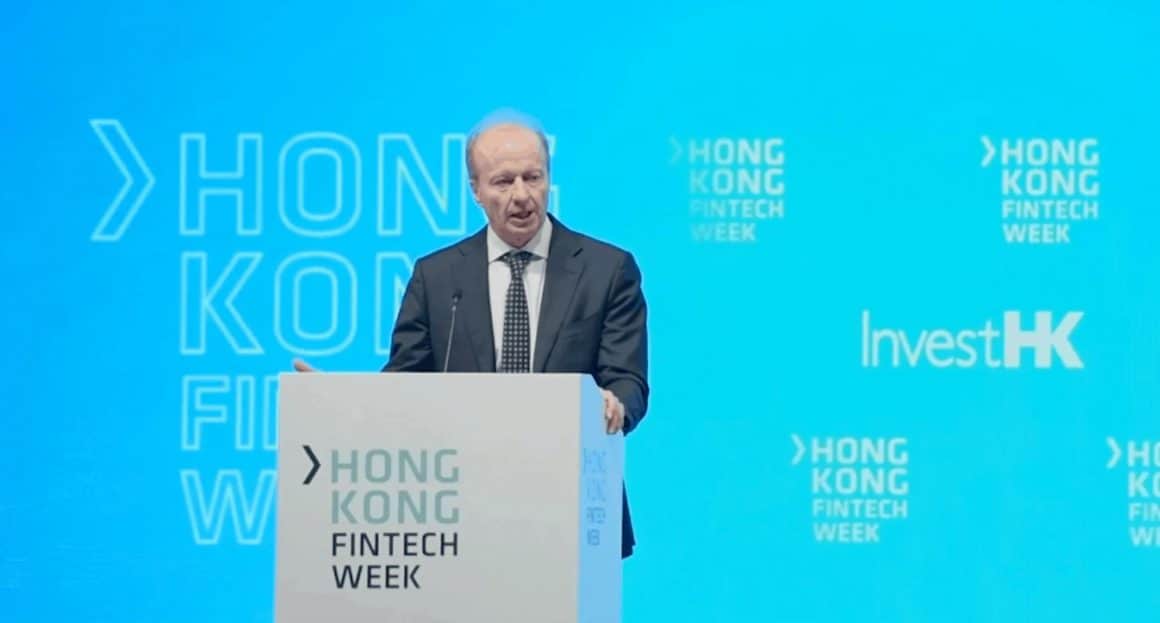Hong Kong’s Securities and Futures Commission chief, Ashley Alder, kicked off a firestorm during Hong Kong FinTech Week by announcing a plan to regulate all cryptocurrency exchanges that operate in the city or target its citizens.
These new proposed rules would replace a voluntary framework introduced in 2019 that allowed exchanges to opt in and commit to a set of best practices.
According to the proposal, if any cryptocurrency exchange offers one virtual asset that is currently classified as a “security,” then all assets being traded on the platform would be considered securities.
“Under the current legislative framework, if a platform operator is really determined to operate completely off the regulatory radar, it can do so simply by ensuring that its traded crypto assets are not within the legal definition of a security,” Alder said, in a speech this week.
If serious breaches are committed on the platforms, such as market manipulation, “there will be intervention and restriction on their business,” Alder added. “Once this new regime is in place, all virtual asset trading platforms in Hong Kong would be regulated, supervised and monitored under one of two regimes: the existing opt-in framework we introduced last year, or the proposed new licensing approach being announced today.”
Alder warned: “Failure to do so would, of course, be an offense.”
Citing membership in the Financial Action Task Force as reason for Hong Kong regulators to push through with a strengthened anti-money laundering scheme, Alder said that cryptocurrency exchanges operating in the city — “centralized virtual asset platforms,” in their parlance — would fall under the same rules as securities brokerages.

This means that when the new rules are put in place, cryptocurrency exchanges operating in and targeting Hong Kong would only be open to accredited investors.
What a retail cryptocurrency trading ban would do
Despite the murmurs over Alder’s remarks, these new regulations likely won’t be the end of retail cryptocurrency trading in Hong Kong. More on that later.
These regulations would likely help provide a rules-based environment that would be conducive to institutional money entering Hong Kong’s market. One result could be institutional-grade cryptocurrency exchanges popping up in the territory, potentially run by its incumbent traditional banks. As reported on Forkast.News, Singapore’s DBS, one of the largest banks in Southeast Asia is already believed to be setting up a cryptocurrency exchange. Similar plays could take place in Hong Kong.
BC Technology Group’s OSL cryptocurrency exchange has been granted an approval-in-principle license. The crypto exchange targets institutional investors, and not the retail market.
One of the things called out by Adler was the manipulation of markets and pricing, which continues to be a problem in the cryptocurrency world. CoinMarketCap has struggled with allegations of price manipulation by rogue actors feeding it bad data and has promised to do better, investing in the creation of tools to counter it.
In the traditional financial world, price manipulation is a serious offense. In September, JPMorgan was fined a billion dollars for commodities pricing manipulation. In short, this part was something needed.
All this begs the question: how will this actually impact the exchange industry as a whole?
The cryptocurrency exchanges in Hong Kong are not Hong Kong exchanges
Although many of the biggest cryptocurrency exchanges have offices in Hong Kong, they fly their corporate flags elsewhere. Binance, the biggest by volume, is notoriously elusive of where that might be. Coinbase and Kraken are American. Huobi is Singaporean. BitFenix is in the British Virgin Islands.
On the derivatives side, BitMEX is headquartered in Seychelles, while FTX is one of the few that calls Hong Kong home but bans residents from using its service.
Even if these companies were Hong Kong-registered, they could simply ban residents from its platform but look the other way when VPNs are used to bridge the gap. AAX, with an office in Hong Kong but a registration in Seychelles, unlike BitMEX and FTX allows Hong Kongers on the system but has yet to receive a sanction from regulators.
What the SFC may be doing is laying the groundwork for Hong Kong to become a hub for institutional cryptocurrency cash. What Adler proposes creates solutions for most of the obvious pain points in the industry.
This shouldn’t be thought of as a play to rein in the retail investment space. Despite a nexus to Hong Kong with offices here, they don’t actually operate in the territory. Any attempt to ban Hong Kong’s retail investors from their favorite cryptocurrency exchange platforms would likely be met with VPNs.




